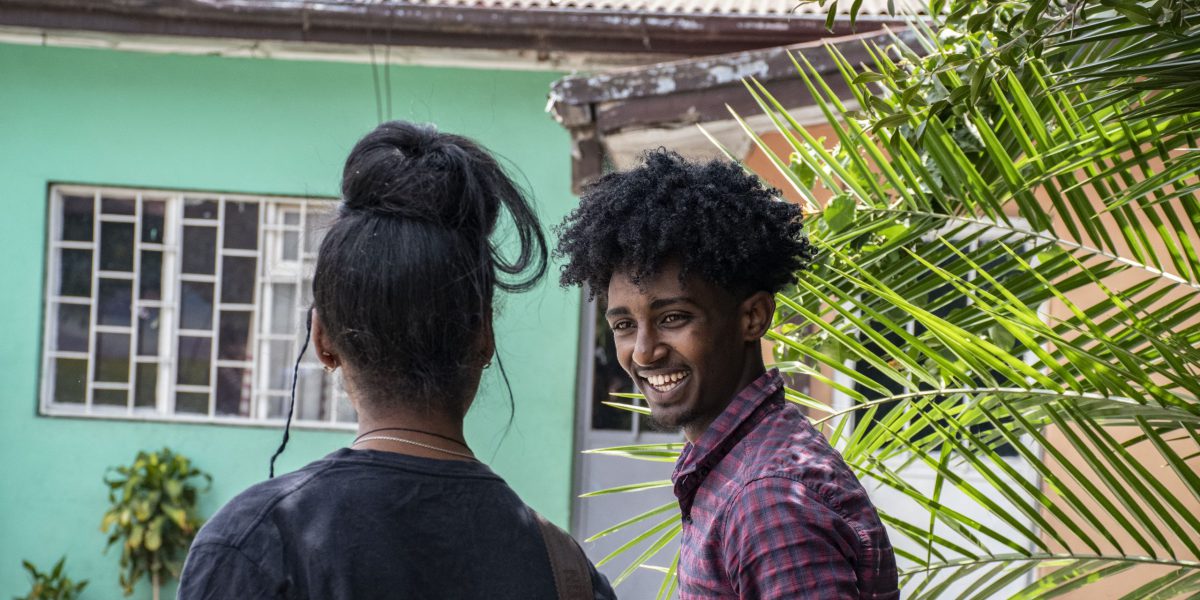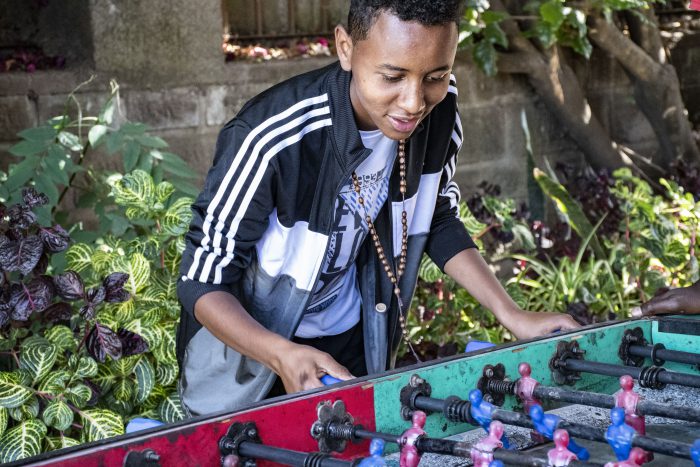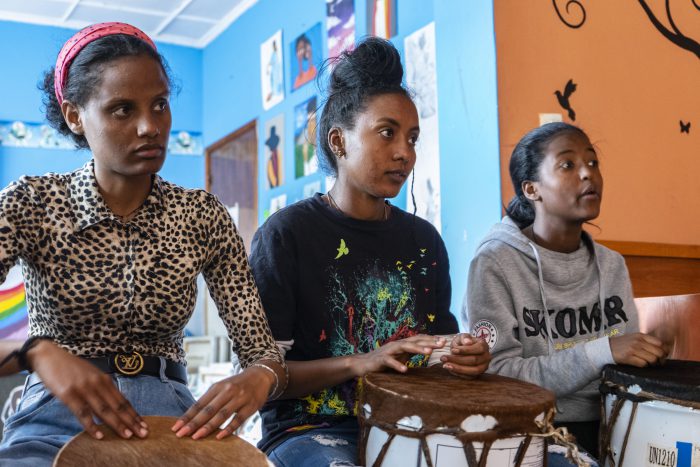JRS Ethiopia & PRM: Child Protection Through Multi-Layered Programs
13 September 2022|Brooke Wood

Due to the ongoing conflict in Tigray between the Federal Government and the T.P.L.F. (Tigray People’s Liberation Front), refugees are fleeing further south to the capital of Addis, Abba, causing over-crowding in the region. As of June 2022, there were a total of 71,604 registered refugees and asylum-seekers in Addis Abba, doubling the total from the prior year. Resources are scarce for these vulnerable populations who are in desperate need of services to cope with the uncertainties of their futures.
 Children make up a significant amount—nearly 31% of the total refugee population in Addis, Abba. Of those children, more than 2,623 children have been identified as unaccompanied. Crisis and displacement often put children and adolescents at a high risk of varying forms of abuse, exploitation, trafficking, separation from caretakers, violence, neglect, or military recruitment. JRS works in highly vulnerable areas to ensure children are safe from harm. However, the need is great in Addis, Abba.
Children make up a significant amount—nearly 31% of the total refugee population in Addis, Abba. Of those children, more than 2,623 children have been identified as unaccompanied. Crisis and displacement often put children and adolescents at a high risk of varying forms of abuse, exploitation, trafficking, separation from caretakers, violence, neglect, or military recruitment. JRS works in highly vulnerable areas to ensure children are safe from harm. However, the need is great in Addis, Abba.
Through multi-year funding from the United States Bureau of Population, Refugees, and Migration (PRM), JRS intends to establish programs that will consolidate and sustain child protection services and expand community based MHPSS services for urban refugees, targeting the most vulnerable groups. It will ensure essential that child protection and MHPSS (mental health and psychosocial support) services are available and the local capacity of refugee social workers, healthcare providers, and community based groups is strengthened to prevent and respond to child protection concerns and address MHPSS needs in the city.
Some of the programs specific to child protection include the following:
- Assistance with case management
- Identification of foster parents followed by various methods of support
- Extracurricular opportunities
- Capacity-building training on gender-based violence (GBV) risks
For children that are unaccompanied , the result tends to be homelessness within the city. While the collective goal is to eventually  reunite them with their parents and/or families, the principle of the best interest of the child is always followed. In the interim, JRS programs work to establish reliable and loving foster families while offering parental support through regular classes. In addition, education has proven to be a life-saving intervention and can completely change the course of a child’s future. JRS programs encourage access to education, working to ensure that vulnerable children are given the same opportunities as their less vulnerable peers.
reunite them with their parents and/or families, the principle of the best interest of the child is always followed. In the interim, JRS programs work to establish reliable and loving foster families while offering parental support through regular classes. In addition, education has proven to be a life-saving intervention and can completely change the course of a child’s future. JRS programs encourage access to education, working to ensure that vulnerable children are given the same opportunities as their less vulnerable peers.
Among many others, a goal of these programs is to allow children to thrive in an environment where they’re allowed to be a child. The importance of age-appropriate learning and playing in a safe space cannot be overstated. However, when safety is a constant concern, typical childhood experiences are not allowed. JRS encourages these experiences through extracurricular opportunities in a wide variety of interests.
The continuity of these programs is crucial, especially as the need continues to increase. JRS hopes that through this additional funding from PRM, we can continue to support and protect vulnerable children, so that they may have the opportunities to grow in a caring and loving environment.
This story would not have been possible without funds from the U.S Department of State: Bureau of Population, Refugees, and Migration



